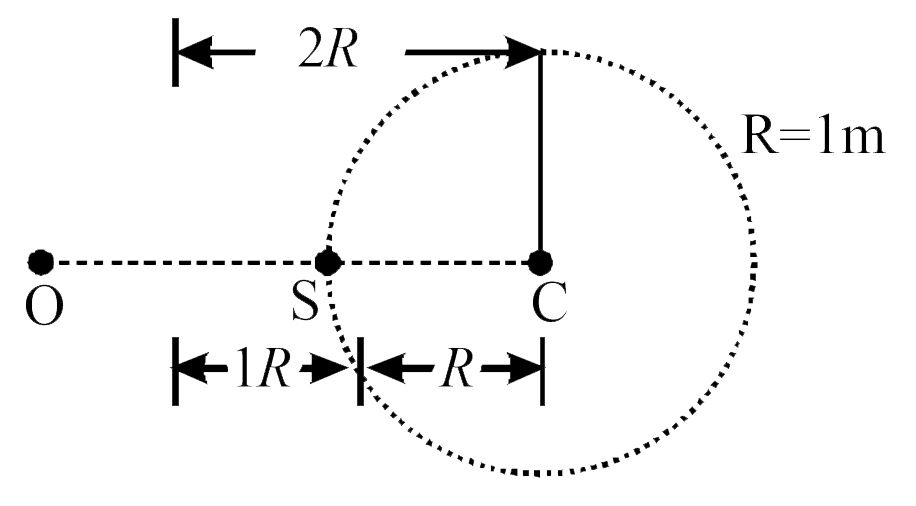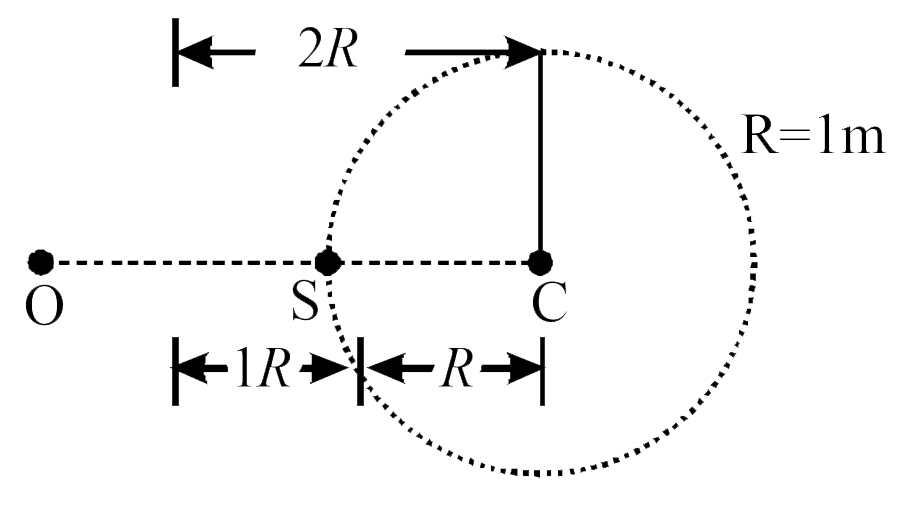A point source emits sound equally in all directions in a non-absorbing medium. Two point P and Q are at distance of 2m and 3m respectively from the source. The ratio of the intensities of the wave at P and Q is :
9:4
2:3
3:2
4:9
The correct Answer is:a
Step by step video, text & image solution for A point source emits sound equally in all directions in a non-absorbing medium. Two point P and Q are at distance of 2 m and 3 m respectively from the source. The ratio of the intensities of the wave at P and Q is : by Physics experts to help you in doubts & scoring excellent marks in Class 12 exams.
Updated on:21/07/2023Topper's Solved these Questions
Similar Questions
A point source emits sound equally in all directions in a non-absorbing medium. Two points P and Q are at the distance of 9meters and 25 meters respectively from the source. The ratio of amplitudes of the waves at P and Q is…..
View SolutionSound from a point isotropic source spreads equally in all directions in homogeneous medium. Therefore its intensity decreases with square of distance from the source. When distance between observer and the source changes, apart from changes in intensity, the observer listens sound of pitch higher or lower than actual pitch depending upon the fact that the distance between the observer and source is decreasing or increasing respectively. An observer O is at a distance 2R from centre of a circle of radius R. A point isotropic sound source S moves on the circle with uniform angular velocityω=π/3 rad/s. Initially observer, source and centre of the circle are in same line.

Sound emitted by the source at two successive instants t1 and t2 has minimum and maximum observed pitch respectively, then –
View Solution
Knowledge Check
A point source emits sound equally in all directions in a non-absorbing medium. Two point P and Q are at distance of 2m and 3m respectively from the source. The ratio of the intensities of the wave at P and Q is :
A9:4B2:3C3:2D4:9A point source of sound is placed in a non-absorbing medium two points A and B are at the distance of 1 m and 2 m, respectively, from the source. The ratio of amplitudes of waves at A to B is
A1:1B1:4C1:2D2:1A source of sound is in the shape of a long narrow cylinder radiating sound waves normal to the axis of the cylinder. Two points P and Q are at perpendicular distances of 9 m and 25 m from the axis. The ratio of the amplitudes of the waves at P and Q is :-
A5:3B√5:√3C3:5D25:9
Sound from a point isotropic source spreads equally in all directions in homogeneous medium. Therefore its intensity decreases with square of distance from the source. When distance between observer and the source changes, apart from changes in intensity, the observer listens sound of pitch higher or lower than actual pitch depending upon the fact that the distance between the observer and source is decreasing or increasing respectively. An observer O is at a distance 2R from centre of a circle of radius R. A point isotropic sound source S moves on the circle with uniform angular velocityω=π/3 rad/s. Initially observer, source and centre of the circle are in same line.

Starting from initial moment, the source moves through an angular displacement 180∘. Intensity of the sound as observed by the observer decreases by a factor of –
View SolutionA point source emitting uniformly in all directions is placed above a table top at a distance of 0.50 m from it. The luminous flux of the source is 1570 lumen. Find the illuminance at a small surface area of the table to a.directly below the source and b. at as distance of 0.80 m from the source.
View SolutionA point source that emits wave uniformly in all directions, produces wavefronts that are
View SolutionAt two point P and Q on screen in Young's double slit experiment, waves from slits S1 and S2 have a path difference of 0 and λ4 respectively. The ratio of intensities at P and Q will be:
View SolutionAt two point P and Q on screen in Young's double slit experiment, waves from slits S1 and S2 have a path difference of 0 and λ4 respectively. The ratio of intensities at P and Q will be:
View Solution
